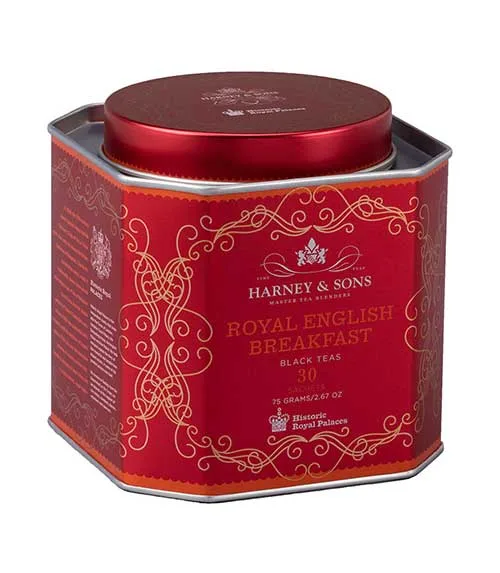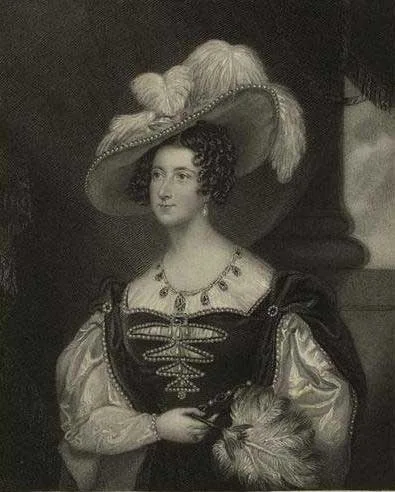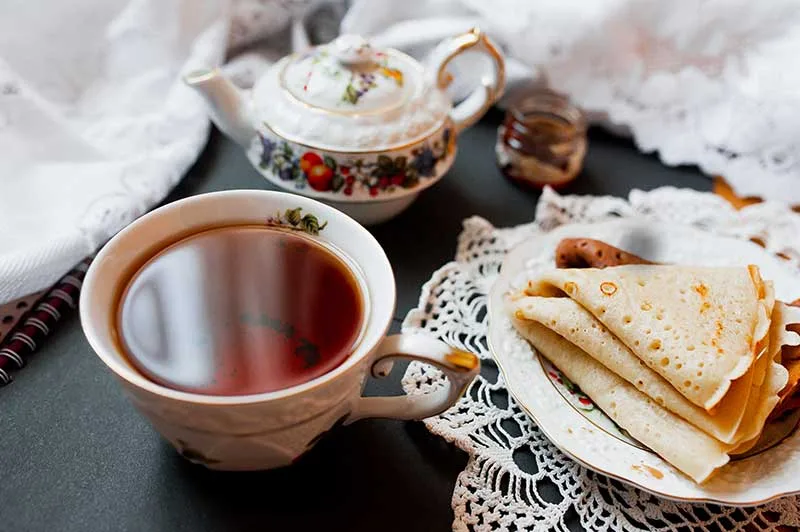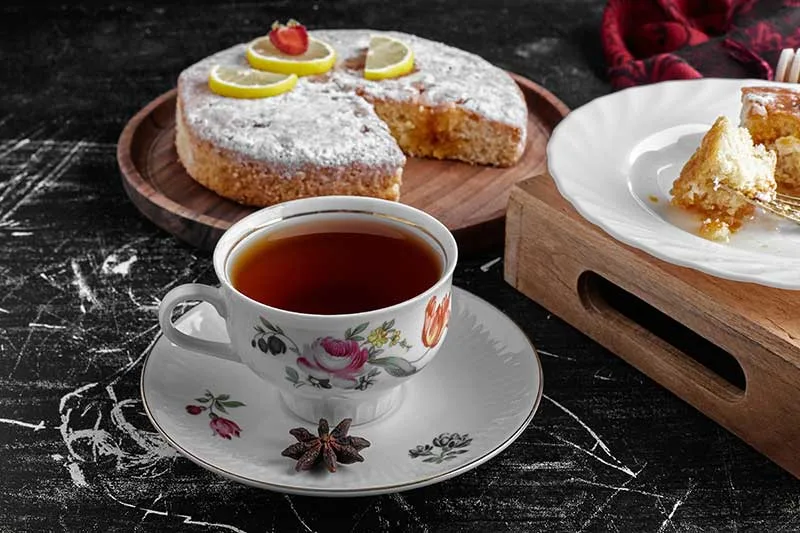Breakfast Tea vs. Afternoon Tea: What’s The Difference?
In my view, there are three groups of people. Those who drink tea in the morning, those who drink tea in the afternoon, and those who drink tea both in the morning and in the afternoon. Most of us can’t start our day without a hot cup of tea, because we feel something is missing. Some of us also can’t get a restful sleep or end the day if we don’t drink a cup of tea in the afternoon, because we think the day doesn’t go on if we don’t do so. Regardless of which group you’re in, tea plays an important role in your day, work, performance, and productivity. You may have seen the words Breakfast Tea and Afternoon Tea, especially on the tea packaging of famous black tea brands. But what do they mean? What is the difference between breakfast and afternoon tea? Aren’t both supposed to be the same tea?
In this article, we are going to look at this topic a little more closely, find out what the composition of morning tea is, what the taste of afternoon tea is, and why choosing the right tea can change the mood of our day. If you are a tea lover, this article will definitely help you.
History & Culture of Breakfast Tea and Afternoon Tea
Let’s look back at history to understand why we have morning tea and afternoon tea. Breakfast tea originated in Britain and Ireland. When the British and Irish needed a strong drink to start their day, a blend of bold and flavorful tea leaves, such as Assam from India and Ceylon from Sri Lanka, was their choice.

Breakfast tea blends have a strong flavor and dark color. Add a little bit of milk and sugar, and the tea turns into the staple drink that goes with the famous English breakfast. It is still one of the most popular choices in England and is served in all cafes all around the UK and Ireland.
On the other hand, Afternoon Tea is more of a social tradition than a hot drink. It is a part of the tea culture in the United Kingdom and is also originated in Britain around the 19th century. It is said that the Duchess of Bedford was the first to drink tea at 4 or 5 pm to satisfy hunger between lunch and dinner, accompanied by small sandwiches, cakes, and biscuits.

This tradition became so popular that British hotels and cafes still hold afternoon tea ceremonies in the same old style. Later, a new blend of tea was selected specifically for the afternoon tea. The blend, which is still used widely in the UK as well as other countries, has less caffeine to prevent disrupting the night’s sleep.
Why is Breakfast Tea Energetic and Afternoon Tea Relaxing?
The differences between breakfast tea and afternoon tea go beyond the name. The most important difference lies in the amount of caffeine. Many people think the amount of caffeine is roughly the same in all black teas. But in fact, the composition of the leaves and even the size of the leaves have a significant impact on the tea’s caffeine content.

Breakfast tea is usually made from a combination of stronger leaves such as Assam or Ceylon. Leaves are crushed and processed so the tea brews faster and with a stronger flavor. When tea leaves are crushed, more caffeine is released. Therefore, a cup of breakfast tea in the morning may contain close to 40 to 70 milligrams of caffeine. This provides you with a good, quick energy boost to start the day.
On the other hand, afternoon tea is usually made from lighter leaves such as Darjeeling or Earl Grey. They have less caffeine content with a more subtle flavor and aroma, which makes it a good hot tea to drink in the evening. Afternoon tea usually contains about 30 to 60 milligrams of caffeine, which makes it a relaxing cup of tea in the afternoon. But although it has less caffeine, that doesn’t make it a bedtime tea. It’s best not to drink it in the evening or before sleep.
How to Brew Breakfast Tea and Afternoon Tea?
You may think brewing different varieties of black tea should be different. But it’s far from the truth. There is a subtle difference between brewing breakfast or morning tea and afternoon tea.

Let’s see how we can correctly brew a delicious cup to enjoy energetic mornings and relaxing afternoons.
Breakfast Tea Brewing Recipe
- Add a generous teaspoon of breakfast tea leaves to a small-medium teapot. If your teapot is larger, add 1.5 to 2 teaspoons. Make sure the tea you use is breakfast tea. Commonly, it is printed largely on the tea packaging.
- Bring water to a boil. Then pour the boiling water until it is half or two-thirds full
- Let the tea leaves steep for 3 to 5 minutes. Then remove the tea leaves. If your teapot has a strainer, it will be a lot easier.
- Pour the tea into a cup and enjoy your delicious breakfast tea.
Most people, especially in the UK, drink breakfast tea with a little milk and a little sugar. milk reduces the bitterness of the tea and creates a milder taste. You can also sweeten your tea with natural sweeteners if sugar doesn’t have a place in your diet.
Afternoon Tea Brewing Recipe
- Add a generous teaspoon of afternoon tea leaves to a small-medium teapot and up to 2 teaspoons for larger teapots. Make sure it is a dedicated afternoon tea. It says it on the packaging as well.
- Bring water to a boil. Then put the kettle aside and allow 10 to 15 minutes until the water reaches 85 to 80 degrees. Brewing afternoon tea with boiling water impacts the flavor.
- When the water cools down a bit, pour it into the teapot until it is half to two-thirds full.
- Allow 3 to 5 minutes before removing the strainer.
- Pour a cup of tea and enjoy.
Afternoon tea lovers drink it without milk to truly enjoy the taste and aroma, and of course, to keep the true spirit of afternoon tea culture.
Benefits of Drinking Tea in The Morning and Afternoon
Apart from the morning energy kick and a relaxing afternoon, black tea throughout the day has several other health benefits, although you should drink tea in moderation to prevent side effects.
Here’s a list of drinking black tea in the morning and in the afternoon.
- Black tea is a good source of antioxidants. These compounds help the body become more resistant to free radicals.
- Drinking tea in the morning can reduce the risk of heart disease, reduce bad cholesterol levels, and help gut health and digestion.
- Breakfast tea has high caffeine content, making it a good herbal drink to replace sugary energy drinks during work, study, or exercise.
- Afternoon tea is good for a relaxing afternoon, but it also helps you reduce the stress and tension you experience throughout the day. The calming effect comes from bergamot extract, which is used to process Earl Grey tea: a common variety of afternoon tea.
It is interesting to know that many people in the world drink tea not only for health, but also for socializing and getting together. A cup of afternoon tea is a great excuse to chat with friends or take a short break after a hard day of work.
Conclusion
Ultimately, drinking tea is more than just quenching thirst, and each type of morning or afternoon tea has its own philosophy, flavor, and effect. If you need energy and focus in the morning, morning tea is the best choice, and if you are tired in the afternoon and looking for relaxation, afternoon tea is a great option. These variations and differences have not only contributed to the richness of tea drinking culture in the world, but have also created diverse and enjoyable experiences for us. If you have not experienced these differences yet, I suggest you try morning tea with a little milk and drink a cup of pure Darjeeling or Earl Grey in the evening. Be assured, this simple difference will become a special and pleasant experience.
